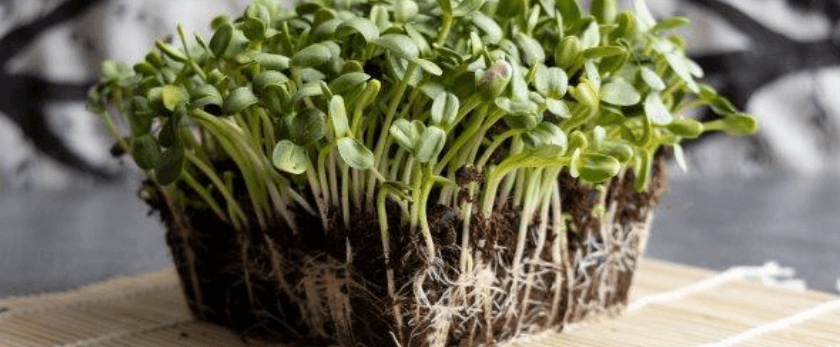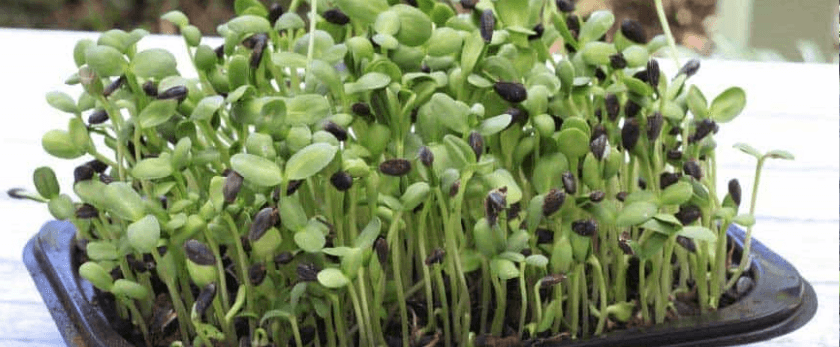Sunflower sprouts are a delicious and nutritious addition to any meal. Not only are they packed with vitamins and minerals, but they are also easy to grow at home. In this article, we will discuss the steps to growing sunflower sprouts, including caring for them, the best time to grow them, and common problems you may encounter. So let's get started!
How to Care for Sunflower Sprouts
Watering
The key to growing healthy sunflower sprouts is to keep the soil consistently moist. This means watering them daily, or even twice a day in hot weather. However, be careful not to overwater as this can lead to root rot. The best way to water sunflower sprouts is to use a spray bottle or a watering can with a fine nozzle. This will prevent the soil from becoming too compacted and damaging the delicate sprouts.
Light
Sunflower sprouts need plenty of sunlight to grow. They should be placed in a sunny spot, preferably near a window that receives at least 6-8 hours of sunlight per day. If you are growing them indoors, you can also use a grow light to provide them with the necessary light. Make sure to rotate the sprouts every day to ensure even growth.
Soil
Sunflower sprouts can be grown in any type of soil, but they prefer a well-draining, nutrient-rich soil. You can use a potting mix or make your own by mixing equal parts of compost, peat moss, and vermiculite. Avoid using soil from your garden as it may contain pests or diseases that can harm the sprouts.
Fertilizer
Sunflower sprouts do not require much fertilizer, but if you want to give them a boost, you can use a balanced organic fertilizer once a week. Be sure to dilute the fertilizer according to the instructions on the package to avoid burning the delicate sprouts.
Pruning
As the sunflower sprouts grow, they will develop their first set of true leaves. At this point, you can start pruning them to encourage bushier growth. Simply pinch off the top of the sprout, just above the first set of leaves. This will also prevent the sprouts from becoming too tall and top-heavy.
What is the Best Time to Grow Sunflower Sprouts?
Sunflower sprouts can be grown year-round, but they thrive in warm weather. The best time to grow them is during the spring and summer months when the days are longer and the temperatures are warmer. If you live in a colder climate, you can still grow sunflower sprouts indoors, but they may take longer to mature.

Common Problems with Sunflower Sprouts
Pests
One of the most common problems with sunflower sprouts is pests. Aphids, mites, and caterpillars are some of the pests that can attack sunflower sprouts. To prevent pests, make sure to keep the area around the sprouts clean and free of debris. You can also use natural pest control methods such as neem oil or insecticidal soap.
Diseases
Sunflower sprouts are susceptible to fungal diseases such as damping off, which can cause the sprouts to wilt and die. To prevent this, make sure to use clean pots and soil, and avoid overwatering. If you notice any signs of disease, remove the affected sprouts immediately to prevent it from spreading.
Mold
Mold can also be a problem when growing sunflower sprouts. This is usually caused by overwatering or poor air circulation. To prevent mold, make sure to water the sprouts sparingly and provide good air circulation by placing a fan near the sprouts.
Responsible Disposal Methods
Once your sunflower sprouts have matured and you have harvested them, it is important to dispose of the leftover soil and plant material responsibly. Do not throw them in the trash as they will end up in a landfill and contribute to greenhouse gas emissions. Instead, you can compost them or use them as mulch in your garden. This will not only reduce waste but also provide nutrients to your soil.
In Conclusion
Growing sunflower sprouts is a fun and rewarding experience. With the right care and attention, you can enjoy a fresh supply of nutritious sprouts all year round. Remember to water them daily, provide plenty of sunlight, use a well-draining soil, and prune them regularly. And don't forget to dispose of them responsibly to do your part in creating a more sustainable future. Happy growing!










